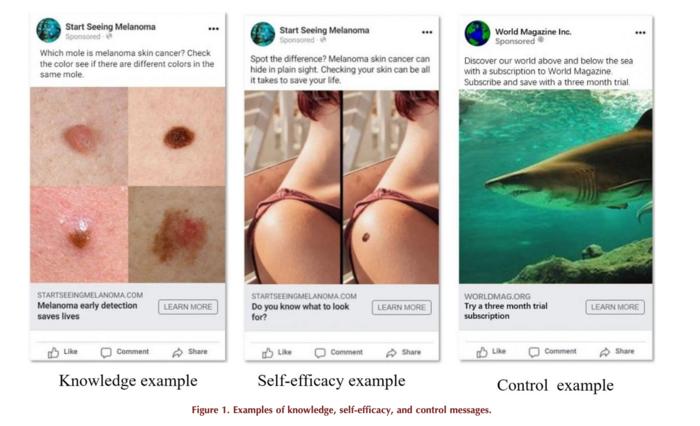Increasing melanoma knowledge and strengthening skin-check confidence can help improve early skin cancer detection and save lives, and social media ads may help boost such confidence, new research shows.
In one population-based survey of 2,326 respondents, only 21.2% provided high knowledge of melanoma, and 62.8% reported performing skin self-exams at any time in their lives. Only 38.3% and 7.3% reported being “fairly” or “very” confident about doing skin self-exams, respectively. Among respondents, skin self-exam performance was most strongly associated with higher melanoma knowledge and more self-efficacy, or confidence in one’s ability to effectively complete an action, reported researchers from Oregon Health & Science University and Lewis & Clark in Portland, OR—along with colleagues at the Fred Hutchinson Cancer Research Center and the University of Washington in Seattle. WA, in Pigment Cell & Melanoma Research.
“The study we did with Oregon and two other states showed that, generally, people knew that they should check their own skin, but they did not feel confident that they would be able to do so successfully,” says Brian Detweiler-Bedell, professor of psychology and director of the Bates Center for Entrepreneurship and Leadership at Lewis & Clark, in a news release. “So, there was a gap there.”
“We knew we needed to focus particularly on how to help people become more confident in their ability to check their own skin,” adds Jerusha Detweiler-Bedell, professor of psychology and director of L&C’s Center for Community and Global Health.
“With melanoma, your eyes really can be your best tool. A mole or spot on your skin that is changing in appearance—size, shape, color—is a key indicator for melanoma,” adds Dr. Sancy Leachman, John D. Gray Endowed Chair for Melanoma Research and Professor of Dermatology at Oregon Health & Science University’s School of Medicine. “And the data is clear: When melanoma is caught early, in stage 1 or 2, the five-year relative survival rate is extremely high—almost 100 percent. When it’s caught late, in stage 4, the five-year relative survival is only 35 percent! That’s why it’s so important that people are empowered to check their skin regularly, and we get the word out about the tools that can help.”
Social Media Ads
As a next step, Dr. Leachman and the Detweiler-Bedells collaborated with faculty at the Center for Science Communications Research at the University of Oregon to develop and test a number of social media advertisements intended to increase melanoma knowledge and skin-check confidence. The results were recently published in JID Innovations.
After viewing messages intended to increase self-confidence in checking their skin accurately, people were also more likely to report greater intentions to do a skin check on a scale of 1-5.
“If you look at the results, the true active ingredient is confidence,” says Brian Detweiler-Bedell. “We were able to demonstrate that the combination of knowledge and confidence is important, but in particular, it is the confidence that really matters,” adds Jerusha Detweiler-Bedell. “Of course, you need to know what unhealthy or potentially suspicious moles look like. But you might ignore or just not even try to check your own skin if you don’t first believe in yourself.”
PHOTO CAPTION: Examples of knowledge, self-efficacy, and control messages.
PHOTO CREDIT: OHSU, Lewis & Clark College, University of Oregon and The Ohio State University.


